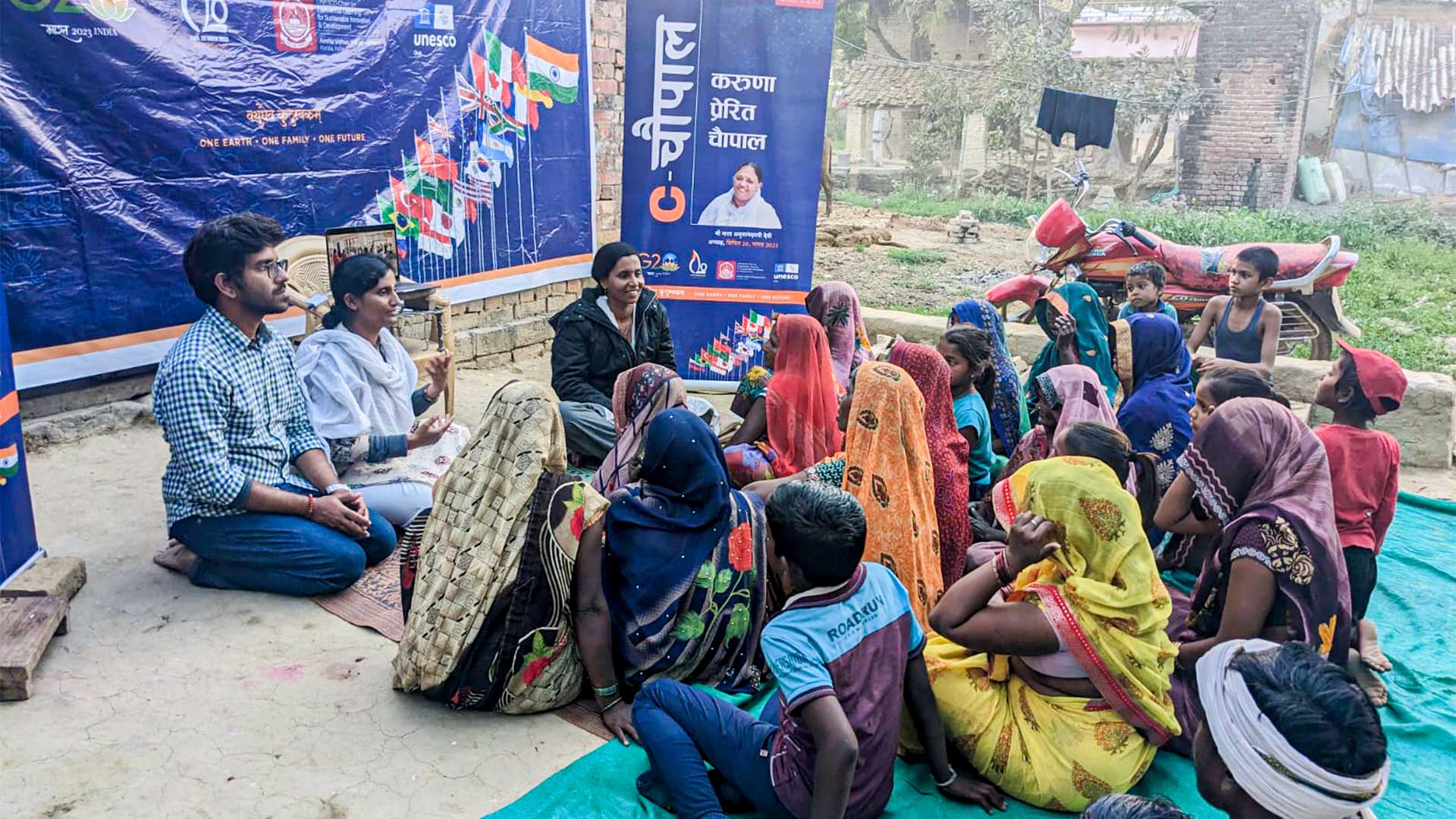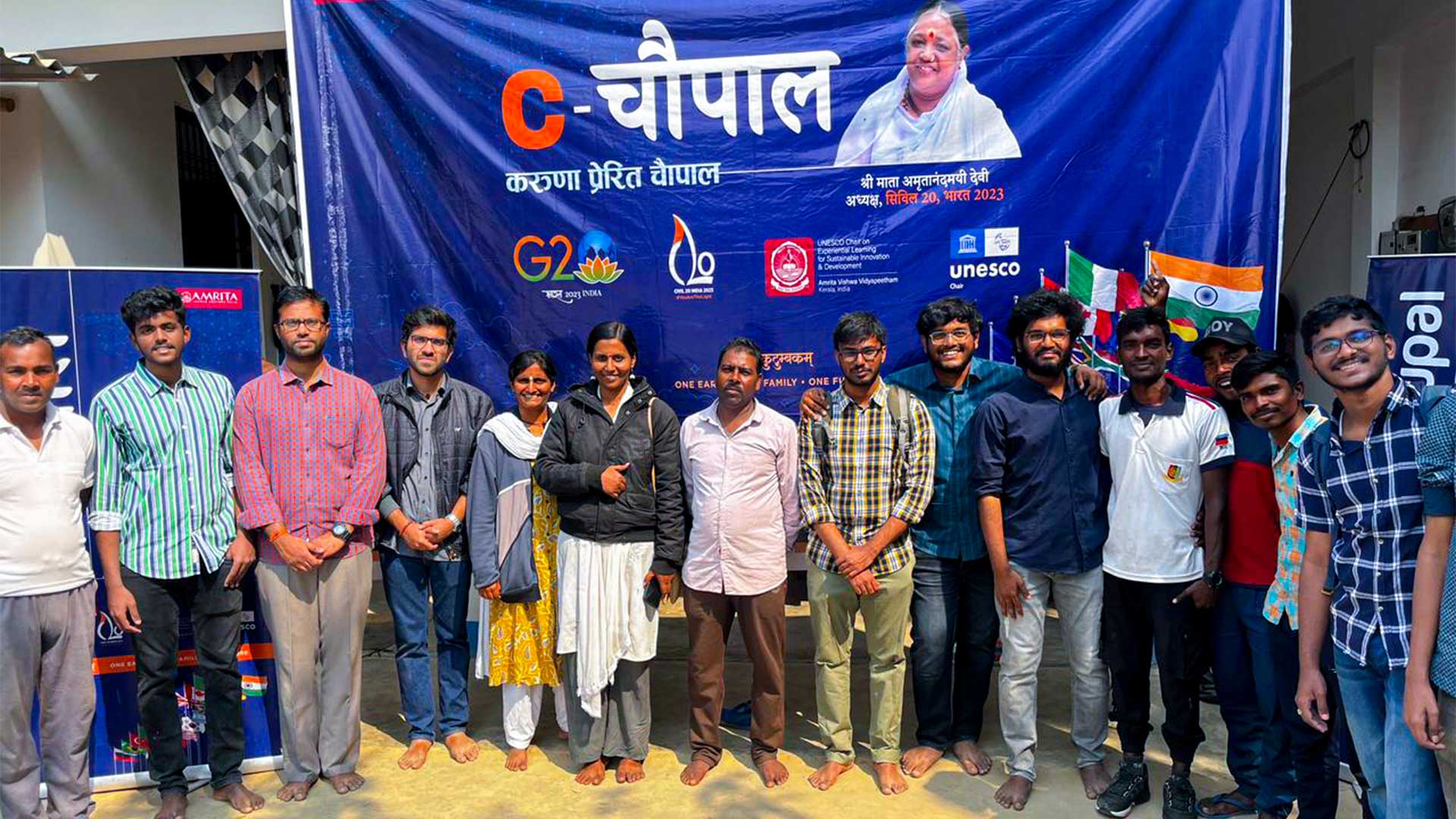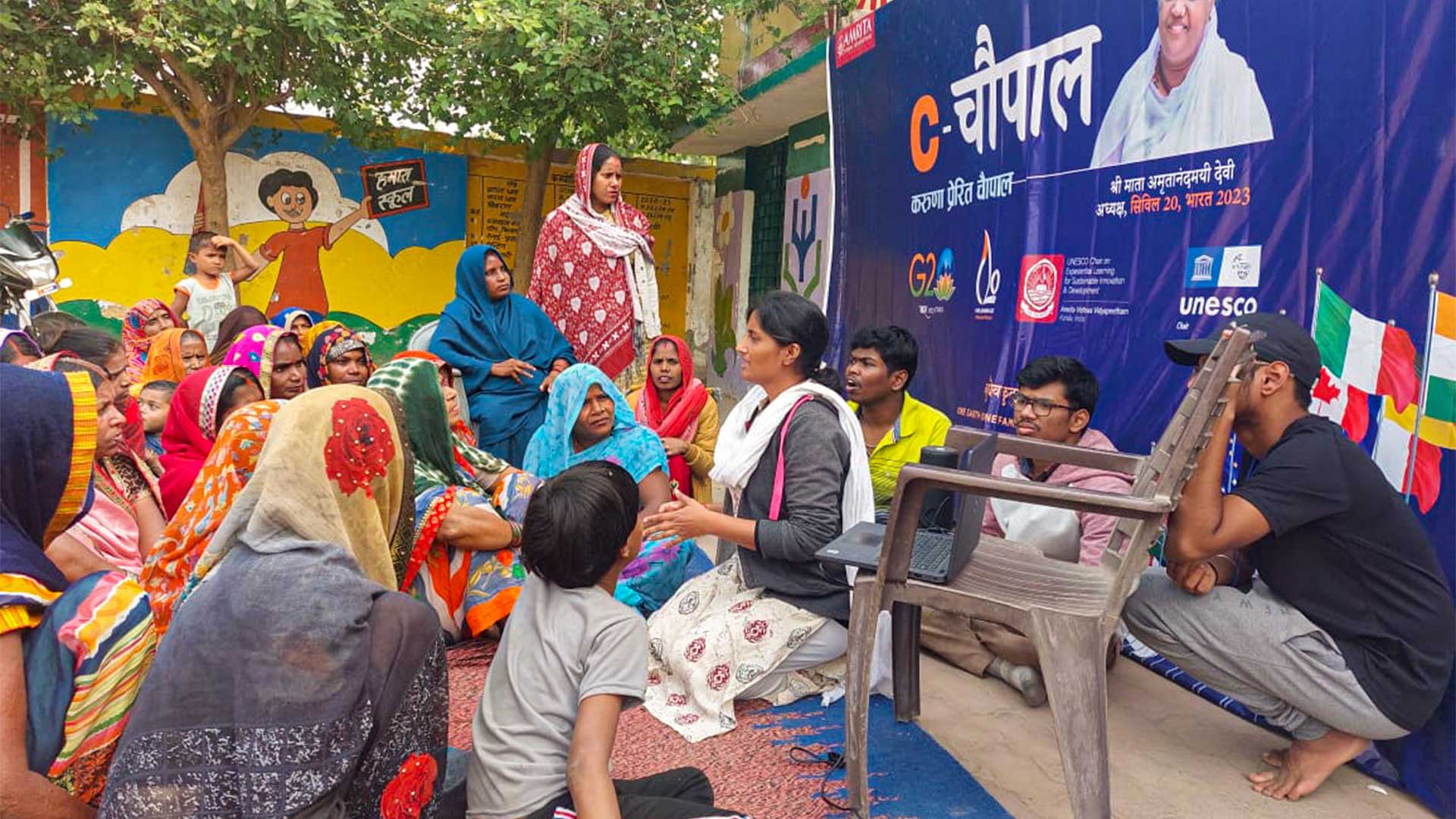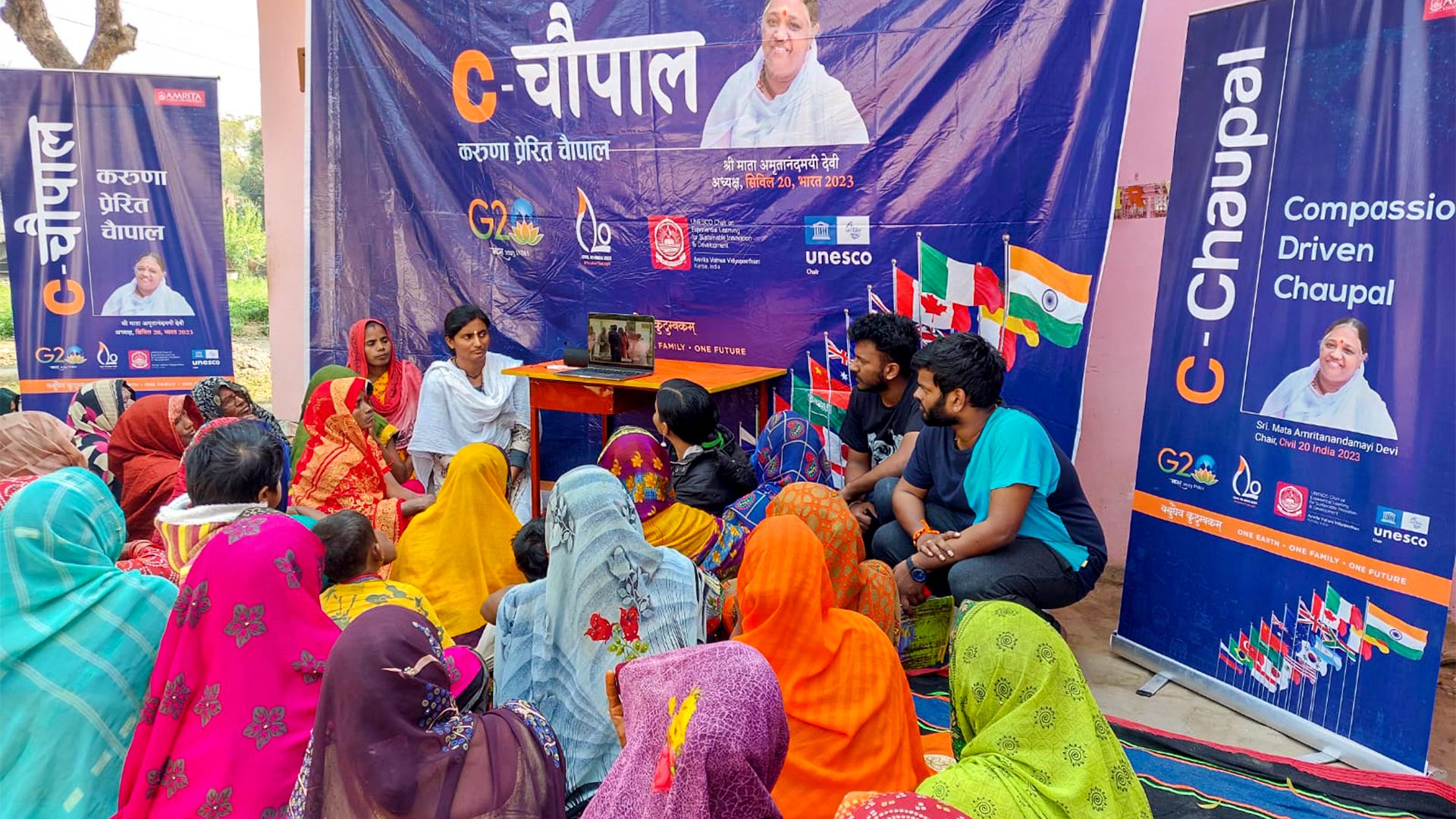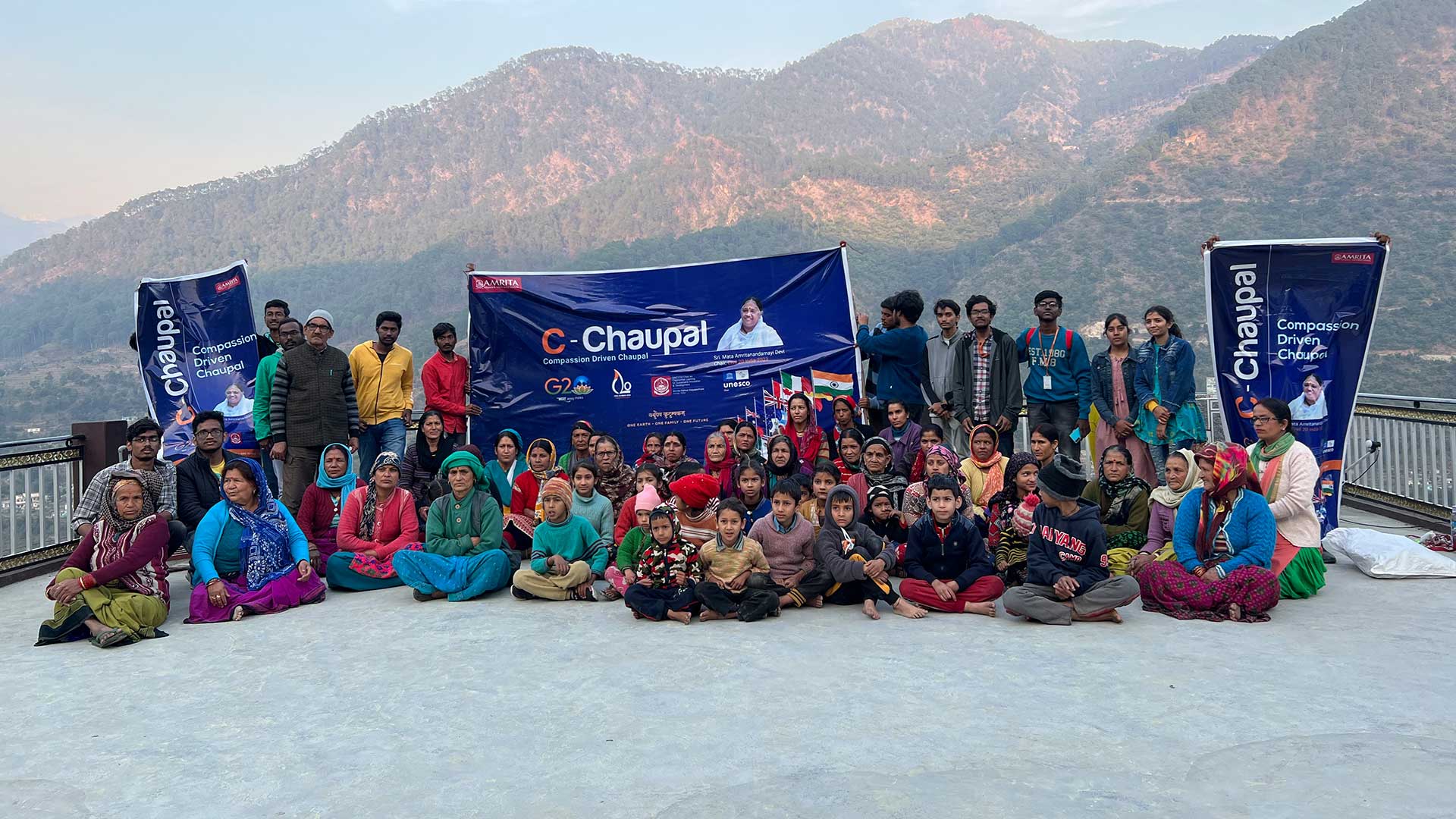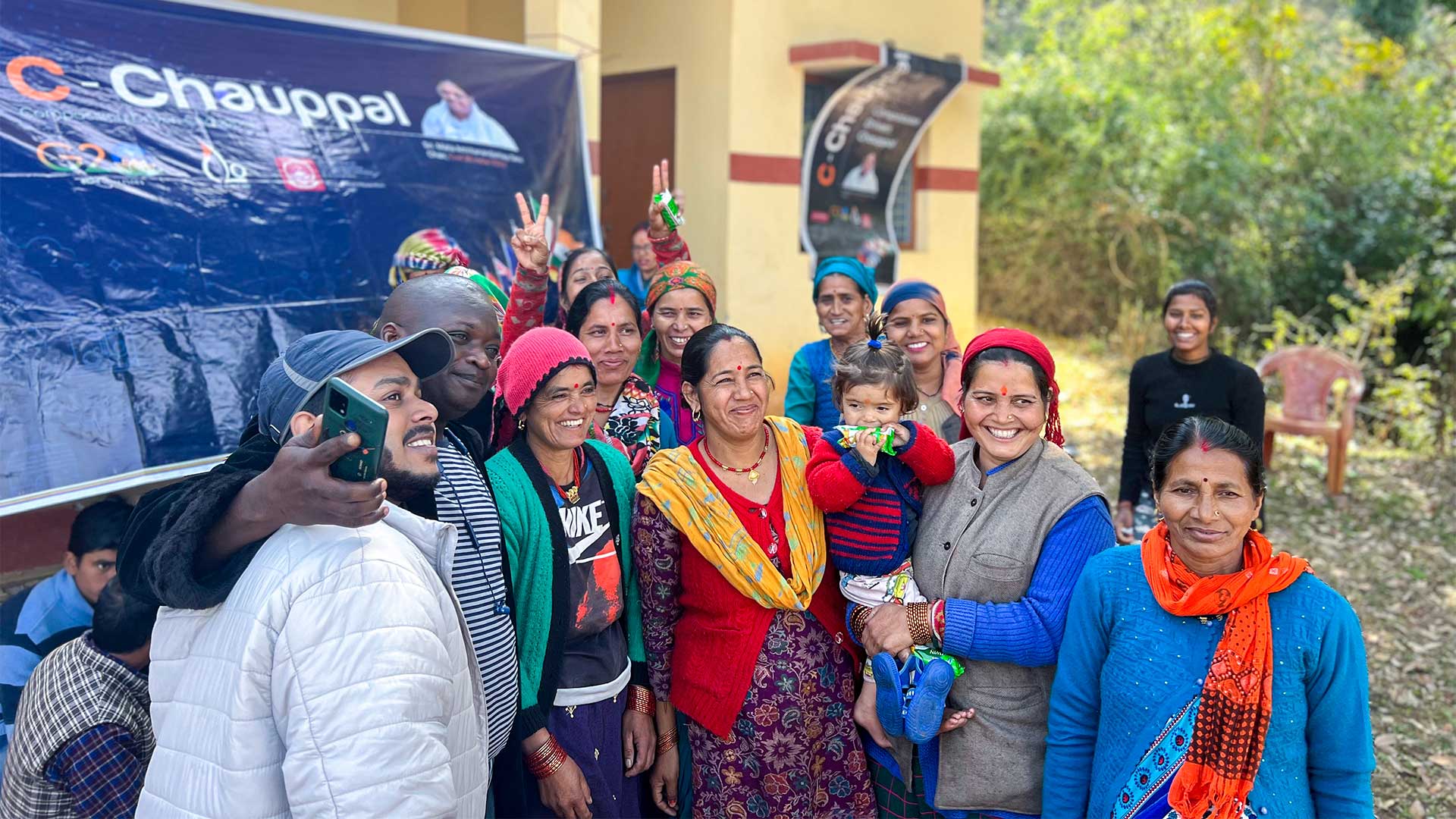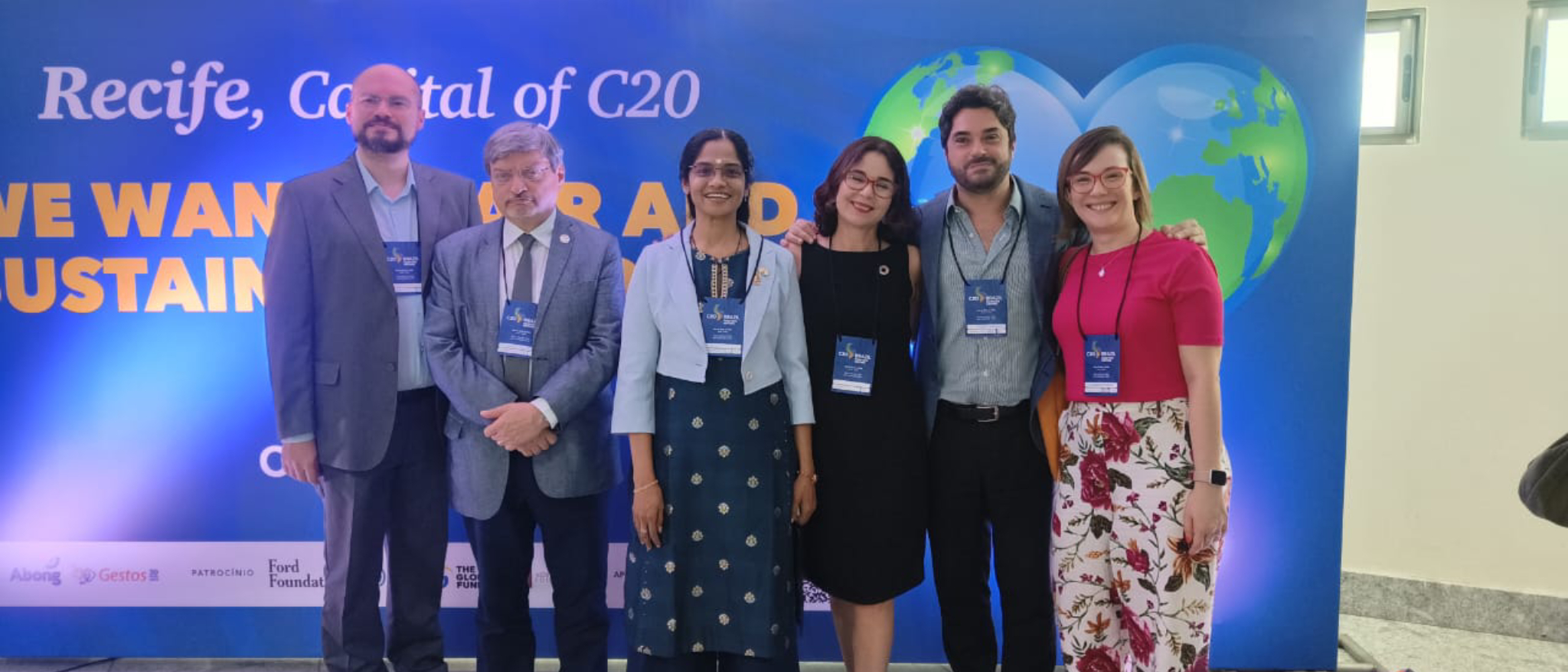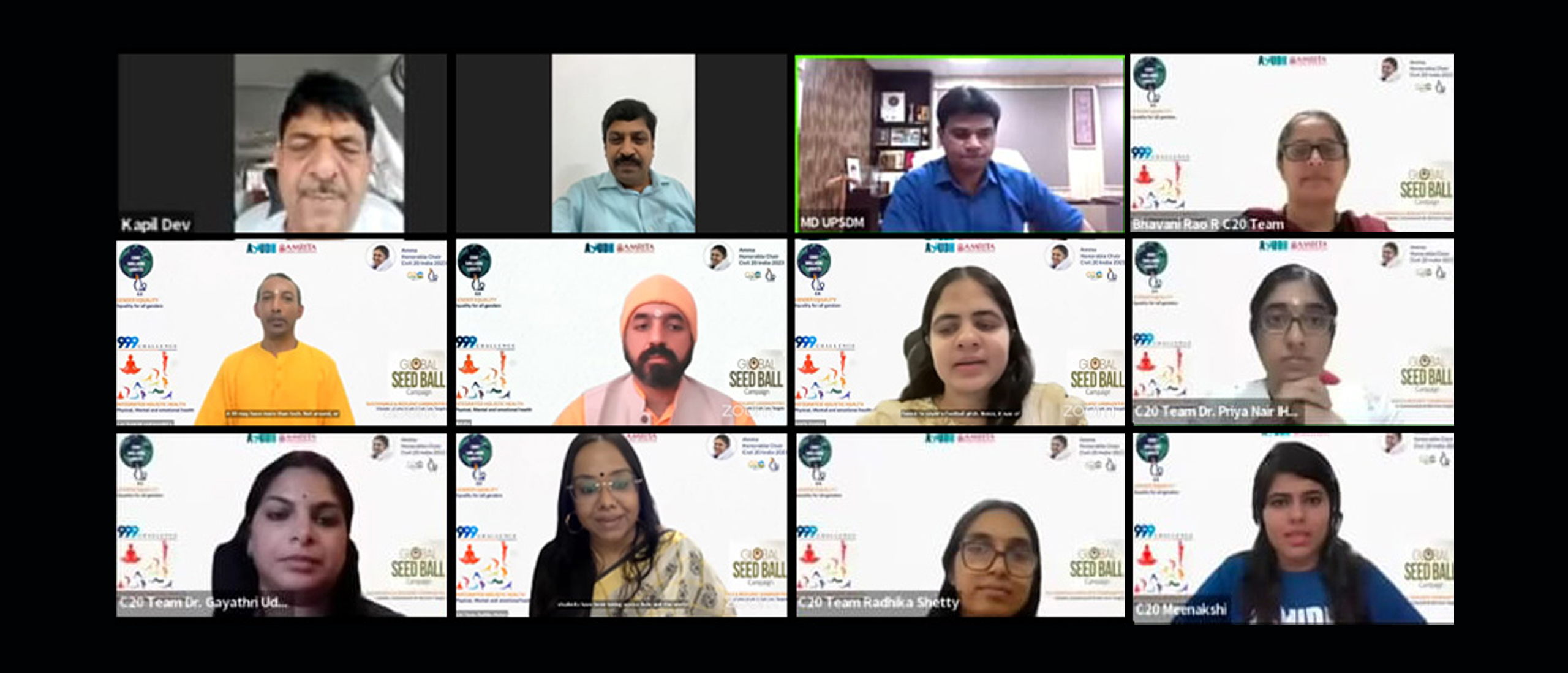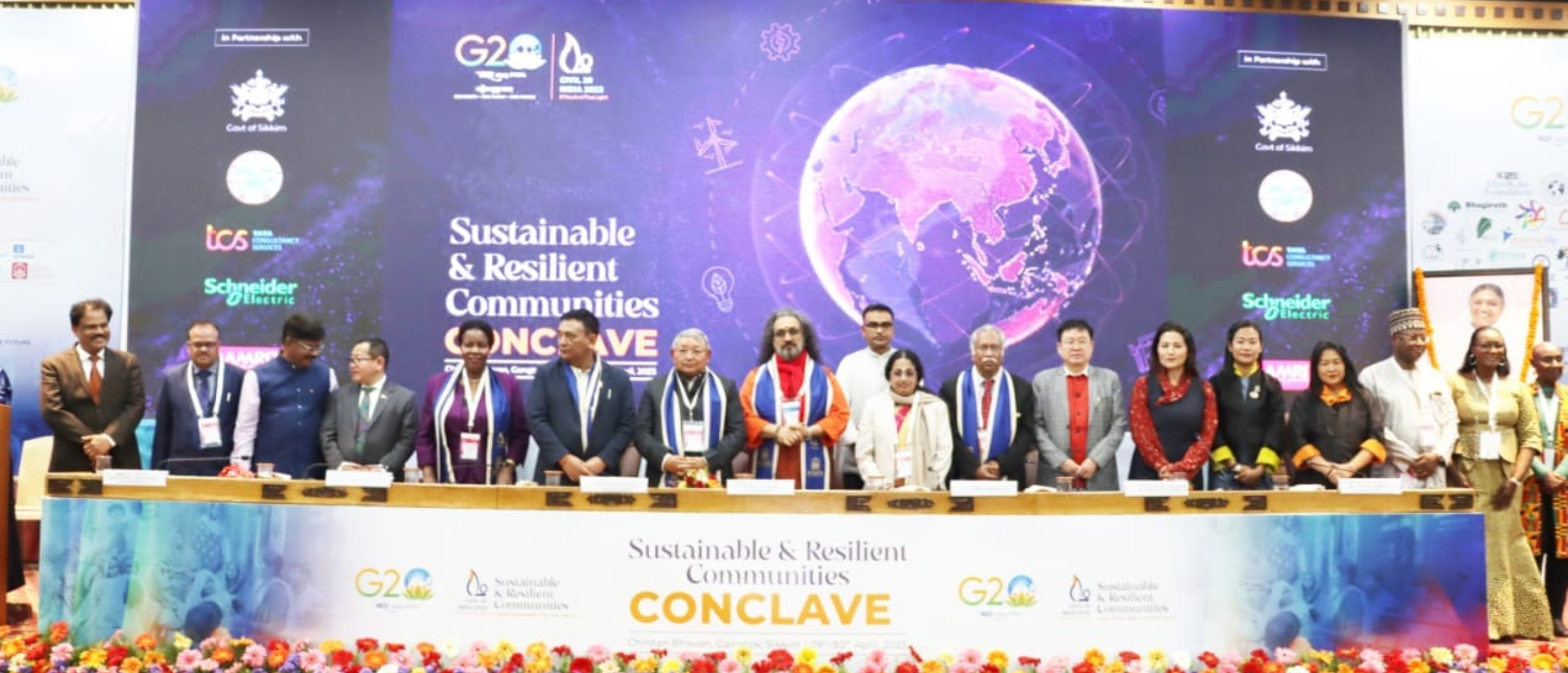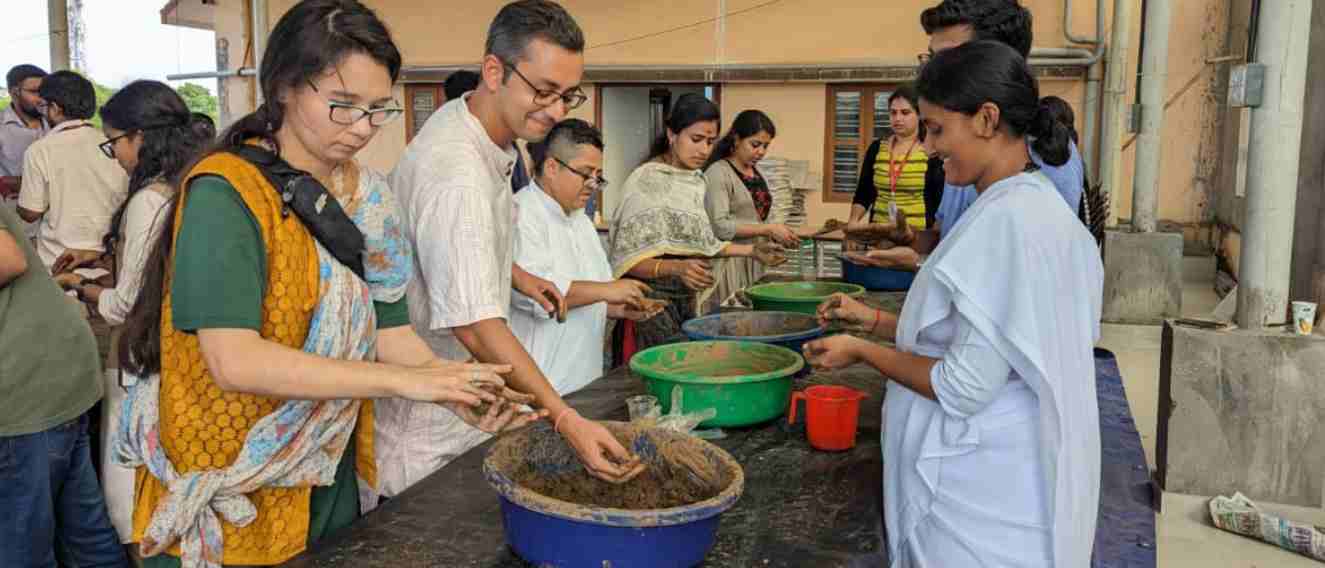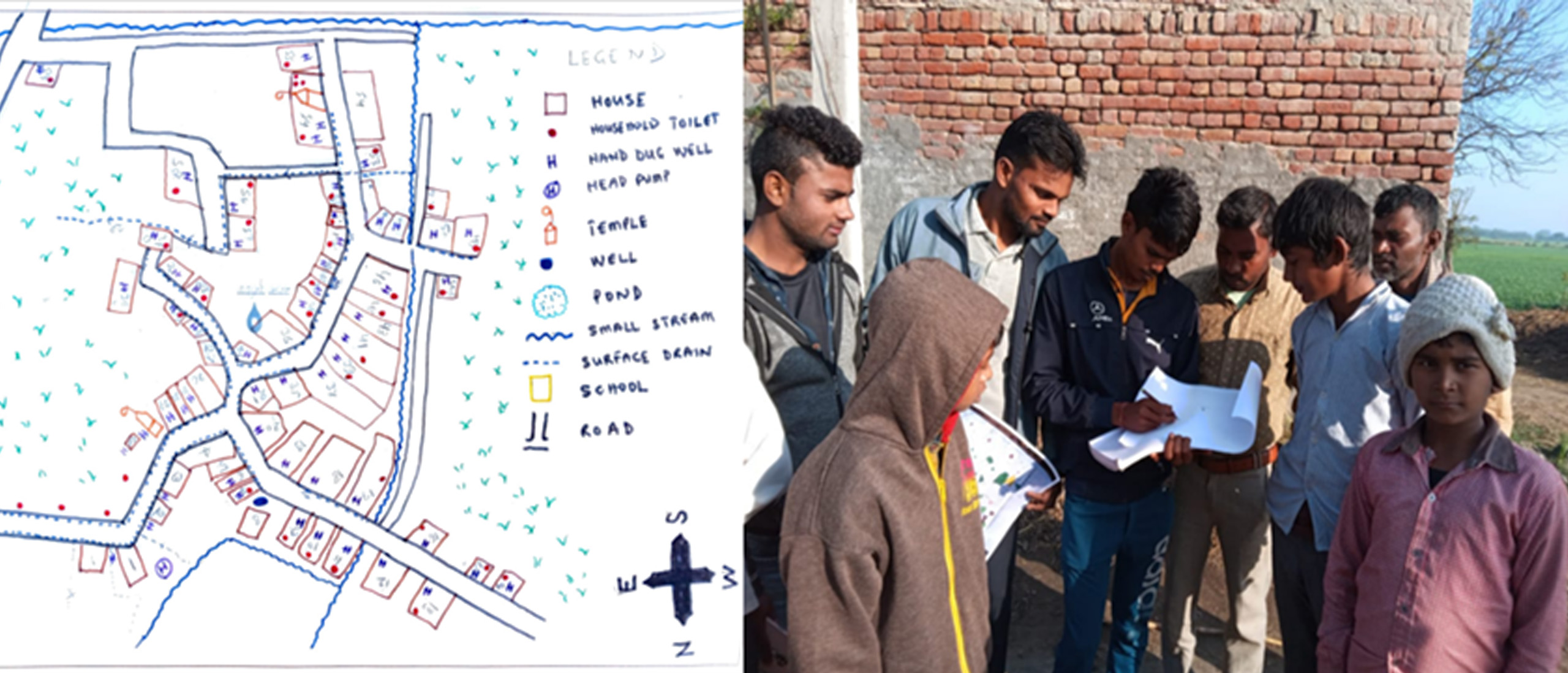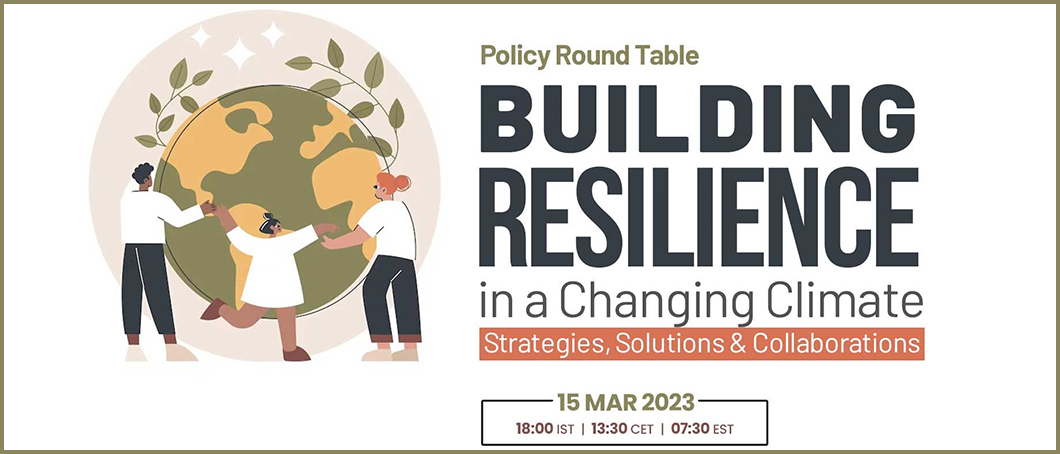Sustainable & Resilient Communities:
Climate, Environment, & Net Zero Targets
Working Group Themes
Climate Resilience & Social Justice

There is a dire need for an all-inclusive approach to addressing climate change, prioritizing vulnerable populations, including women, migrants, indigenous people, persons with disabilities, and youth. The importance of an all-inclusive approach is to understand the interlinkage between social justice and climate resilience.We must address the importance of implementing policies and actions that promote a just and equitable transition based on climate commitments and financing.
Coordinator

Dr. Sudha Arlikatti
Research Head, School for Sustainable Development, Amrita Vishwa Vidyapeetham
Team Members
Dr. Rekha P
Amrita Vishwa Vidyapeetham
Dr. Hemalatha
Amrita Vishwa Vidyapeetham
Environmental Sustainability

Key aspects of Environmental Sustainability encompass a range of practices and behaviours that are essential for preserving the health and well-being of the planet and its inhabitants. These include promoting responsible consumption and production through extended producer and consumer responsibilities. The benefits of environmental sustainability include, safeguarding and restoring ecosystems, preserving endangered species, and sustaining biodiversity, and mitigating the impacts of global warming and climate change. Environmental sustainability can be achieved only with equal participation from all sectors of society.
Coordinator

Dr. Sudesh Kumar Wadhawan
Adjunct Professor, Amrita Vishwa Vidyapeetham; Former Director General, Geological Survey of India
Team Members
Dr. B Soundharajan
Amrita Vishwa Vidyapeetham
Dr. Viswanathan PK
Amrita Vishwa Vidyapeetham
Net-zero Emission Management

The term “net zero” refers to a point in time at which carbon emissions caused by human activity will have reduced to zero globally. The planet’s mission is to achieve net zero by 2050, to stabilize Earth’s climate system at no more than 1.5℃ above pre-industrial levels by 2100. This group is working towards this future, to ensure Earth’s temperatures are liveable and the threats of storms, droughts, and heat waves are minimized. Achieving net zero emissions globally requires diverse solutions across various sectors.
Coordinator
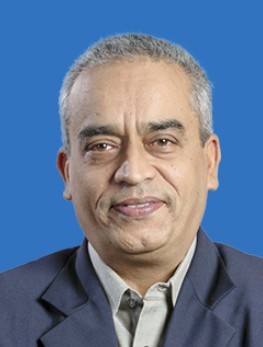
Dr. Sasangan Ramanathan
Dean-Engineering, Amrita Vishwa Vidyapeetham, Coimbatore Campus
Team Members
Dr. Murali Rangarajan
Amrita Vishwa Vidyapeetham
Dr. Muraleekrishnan
Amrita Vishwa Vidyapeetham
Dr. Kanakasabapathy
Amrita Vishwa Vidyapeetham
Collaborators
Compassion Driven Approaches

Nature and all of its creatures exist based on principles of peace and harmony. But humans have a unique tendency of creating differences through power, religion, caste, race, and wealth, and it is pushing humanity faster towards its extinction. There is an urgent need to put an end to this tendency by instilling a vision of unity, which can only be done by restoring the compassion that we are capable of. We need to bring out the voice of civil societies in Compassion Driven Approaches for Sustainable & Resilient Communities.
Coordinator

Dr. Balakrishnan Sankar
Dean-Engineering, Amrita Vishwa Vidyapeetham, Amritapuri Campus
Team Members
Dr. Sriram Devanathan
Amrita Vishwa Vidyapeetham
Mr. Gopal
Amrita Vishwa Vidyapeetham
Join Us
Acts Of Compassion
C-CHAUPAL
Compassion Driven Chaupal
C20 India 2023 Working Group on Sustainable and Resilient Communities has been spearheading Compassion Driven Chaupals (C-Chaupal) initiatives across rural India. The concept of C-Chaupal was launched to organize inclusive and participatory meetings of all sections of rural communities without discrimination of age, gender, caste, class, and income levels in several communities across India to bring out the voices and concerns of the villagers to the C20 and G20 leadership.
Udhaharans

AYUDH – Global Youth Wing



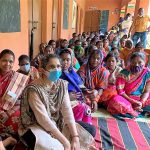
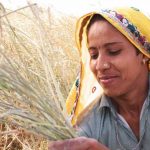

Latest News

Message from the Chair, C20 India 2023
Our Inspiration
Sri Mata Amritanandamayi Devi ❤️
Contact Us
If you have any questions about an upcoming event, need more information about C20, The Climate Change, Energy and Net Zero Target Group, or anything else, we’d love to hear from you.
- Email: src.c20india@gmail.com
